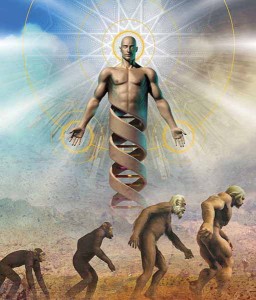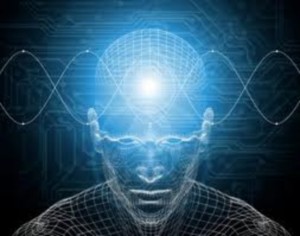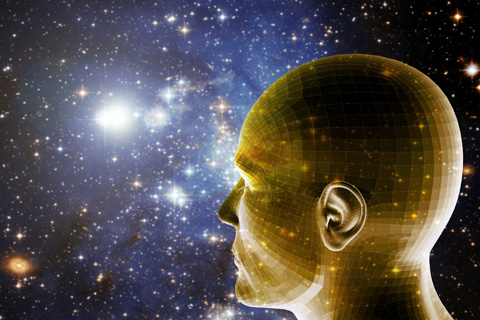Human consciousness is an unexplained contradiction in the infinitely dynamic order of the universe. Consciousness is not ‘evolving,’ but becoming saturated with darkness. Is there an understanding of the relationship between human consciousness and nature that offers genuine hope?
 The attempt by many philosophers and scientists to blur the difference between human consciousness and the natural order just adds to confusion and cynicism. Given that consciousness is not evolving, but rather growing more and more disordered, does that mean one just gives up on humanity, as so many have done?
The attempt by many philosophers and scientists to blur the difference between human consciousness and the natural order just adds to confusion and cynicism. Given that consciousness is not evolving, but rather growing more and more disordered, does that mean one just gives up on humanity, as so many have done?
No, the choice between cynical self-absorption and New Age self-absorption is no choice at all. But can we really find out what humankind’s place in nature is?
Religious beliefs previously served to give meaning to the many, while enabling the few to have control. But belief systems in recent decades have become increasingly reactionary, whether in the Judeo-Christian or Islamic worlds. Is there is an experiencing of something ineffable, beyond knowledge and reason, having nothing to do with belief?
If one believes the universe is a completely random interaction of energy and matter, then an inseparable cosmic intelligence beyond thought (without implying any kind of personal God) is just the invention and illusion of despondent or despotic minds. However with right observation, thought spontaneously falls silent, and there’s an experiencing of the living order and mystery that permeate the cosmos.
But as it is, human consciousness is a tremendous contradiction and conundrum. It used to be called ‘the riddle of man.’ This mystery cannot be resolved by science on one hand, or by mushy appeals to the ‘oneness of our deeper selves’ on the other. Despite the growth in scientific knowledge, human consciousness is not an ascending spiral of progress, but a descending spiral of man-made disorder.
No other life form on this planet operates as we humans do using thought. Is evolution is working out something significant in human consciousness? Not that Earth, much less man, are the center of the universe, just that thought-based consciousness is obviously coming to a head here. Symbolic thought is generating untenable levels of fragmentation outwardly, and darkness inwardly.
Nature unfolds with seamless wholeness. So how (and why) did the separative ability of ‘higher thought,’ which is completely fragmenting the earth, evolve out of the dynamic wholeness of nature? That’s the essence of the ‘riddle of man.’
Though it’s an incredibly powerful adaptation, symbolic thought rests on a principle that is the antithesis of the wholeness and order of the universe. Simply put, whereas the universe operates in unbroken unity, ‘higher thought’ separates ‘things.’ That is its essential nature and function. Not understanding the mechanism of thought within us, humans have become incredibly self-centered, and are fragmenting the earth to the breaking point.
Given the right conditions and enough time, evolution, in its random way, produces brains capable of symbolic, separative thought. Creatures possessing it then must understand themselves to live in harmony with the universe. That doesn’t imply a hierarchy of dominion, much less ‘man created in the image of God,’ but rather draws attention to the contradiction of man, and points toward its resolution.
On one hand, the ability to mentally and physically remove ‘things’ from the environment has given the human species immense powers of manipulation and control over the  environment, even down to the molecular level. On the other hand, without insight into its nature and limitations thought, the human species is breaking apart the earth, cultures and people.
environment, even down to the molecular level. On the other hand, without insight into its nature and limitations thought, the human species is breaking apart the earth, cultures and people.
Consciousness as we usually know it is a growing momentum of useful knowledge and useless accretion. The net result is increasing division, conflict and disintegration. The accumulation in consciousness of useless content (hurts and hate, grudges and garbage) is the source of darkness and evil in the world. Psychological thought is the root of all evil.
Obviously, thought-based consciousness has reached a point where the fragmentation it’s generating threatens the viability of the Earth’s ecosystems. But positively, self-made fragmentation is also putting tremendous pressure on human beings to radically change, veritably into a new species.
The greatest paradox is that symbolic thought is both a necessary precondition for conscious, silent awareness of the intelligence that permeates and transcends the universe, and the greatest impediment to that awareness. Therefore self-knowing is not just a path for Buddhists and Socratic aficionados, but has become the indispensable foundation for the survival and growth of the human species.
This explanation for the ‘riddle of man’ may come close to resolving the mystery, but the explanation will not change the explained. That requires self-awareness and inner spadework in many individuals. And no person can compel another to take the path of self-knowing; it has to come entirely from within the individual.
So is there a cosmic intelligence that cares about the fate of humankind? Yes, but not about humankind as a special creation, much less about us in any personal sense.
There appears to be an intrinsic intent in the universe to evolve, through a largely random process, brains capable of awareness of the intelligence that permeates and transcends the universe. The universe ‘wants’ (to use an unavoidably anthropomorphic term) humankind (the only species on this planet with the capacity for conscious awareness of cosmic intelligence) to radically change.
When human beings deeply share that intent, we take total responsibility for ourselves as the prime agents in our own evolution, which isn’t a function of time. Enlightenment means stepping out of the stream of the past, of conditioning, of consciousness as we’ve known it for tens of thousands of years.
Martin LeFevre

